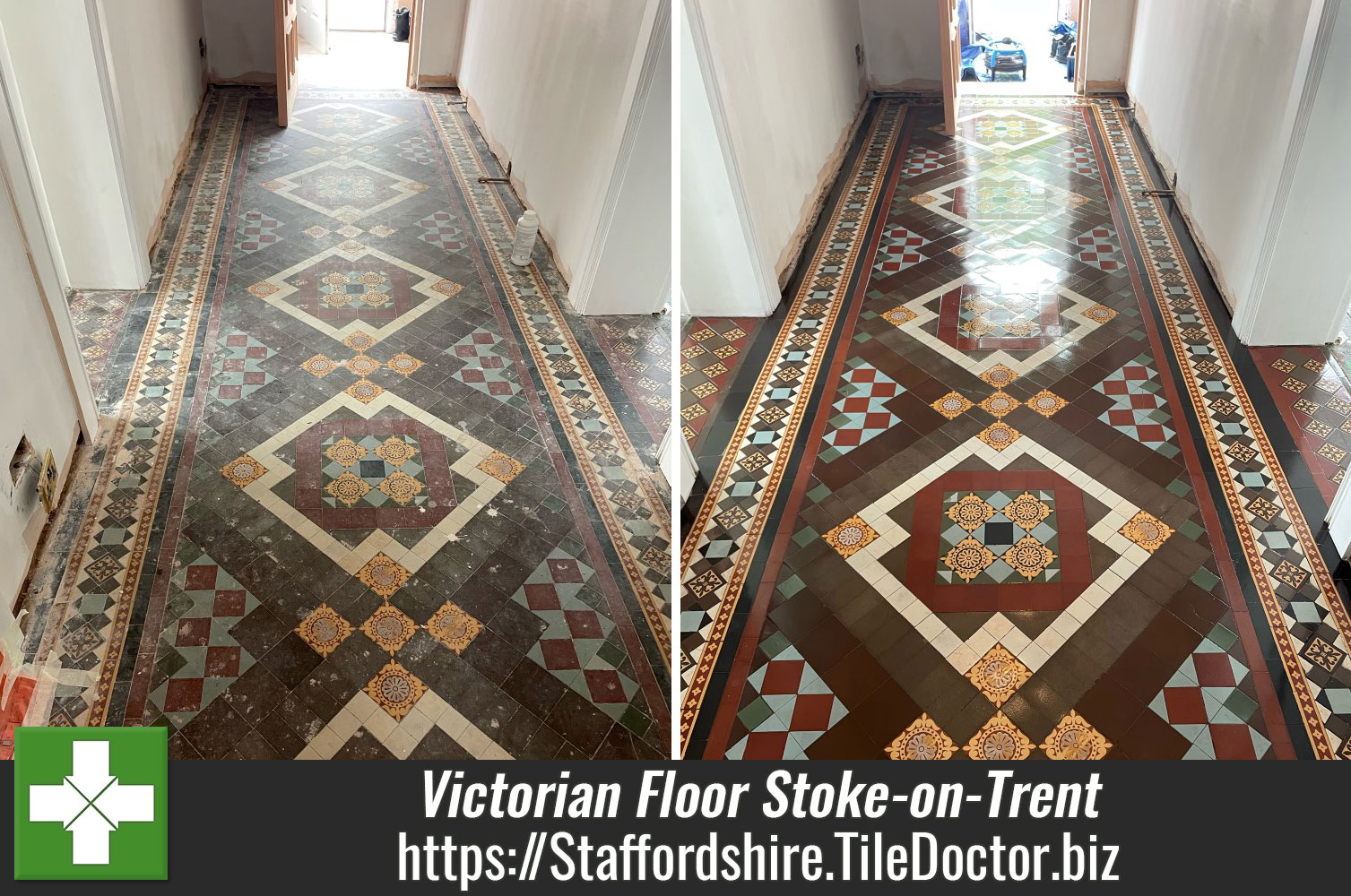Countering Efflorescent Salt Staining Issues with Tile Doctor Grout Clean-Up in Stoke-on-Trent
These pictures are of a Victorian tiled hallway floor laid in a striking geometric pattern at a property on the outskirts of Stoke-on-Trent.. The house was being renovated and the restoration of the floor was one of the remaining projects.
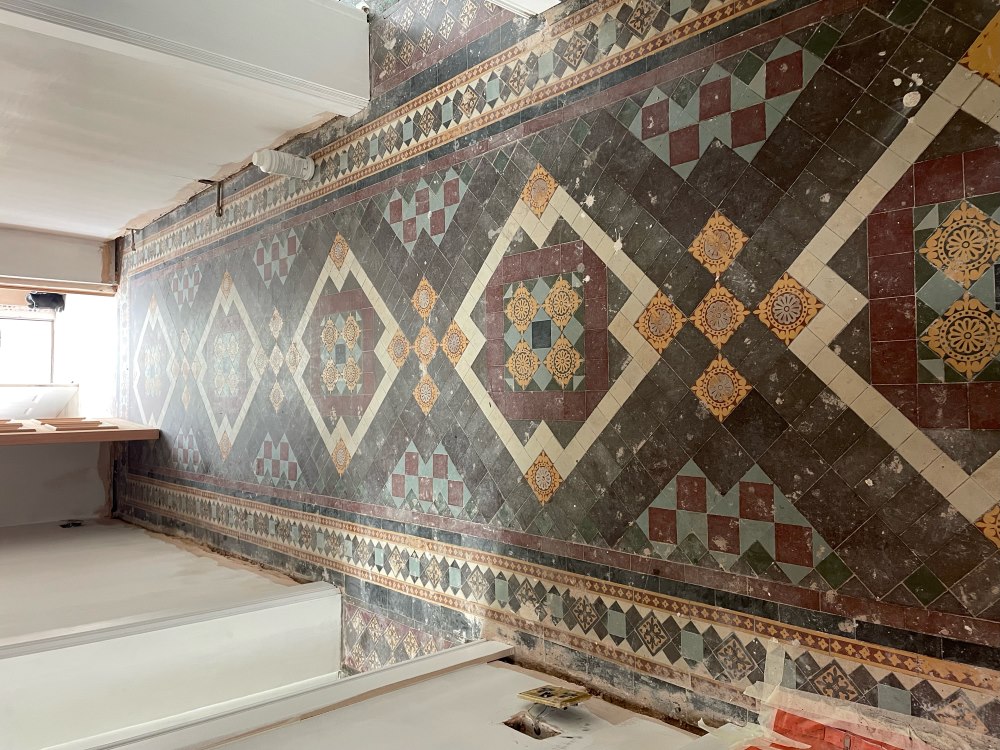
Hopefully you can see from the photographs that as well as being deeply ingrained with dirt the tiles were also stained with plaster dust and paint splatters from the renovation works. Although structurally sound there was some reconstructive tiling work required around the foot of the stairs where there were missing tiles and gaps in the flooring.
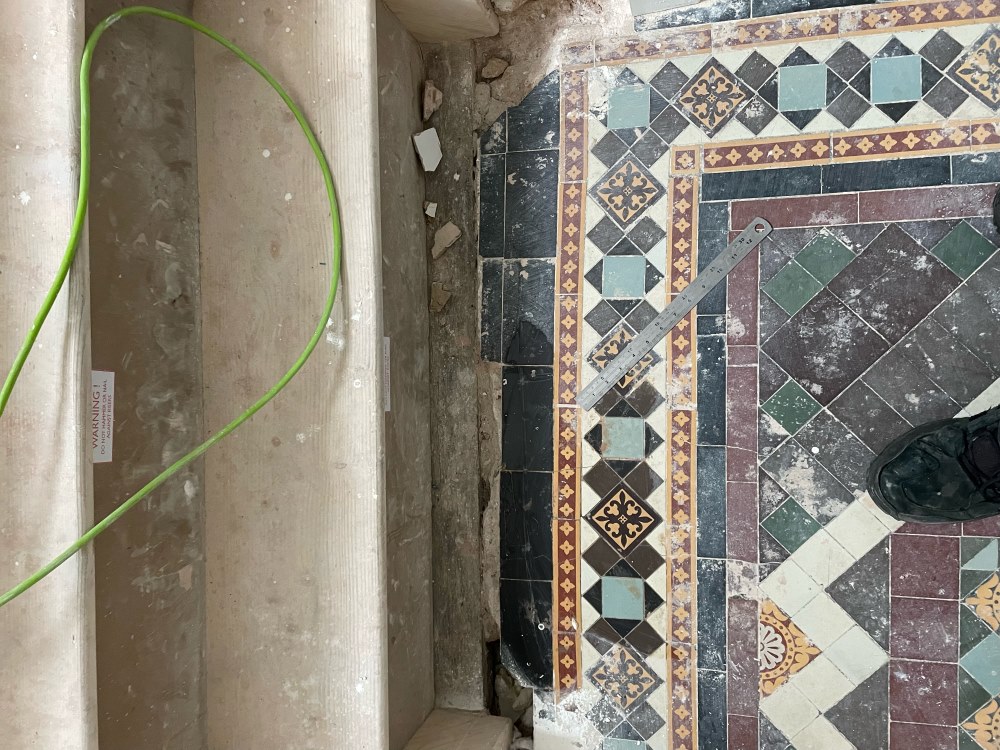
After visiting the property to survey the floor, I was able to come up with a plan for its restoration. The work would take four days and would address the tiling issues, deep cleaning of the floor to remove the dirt and staining and then sealing to protect it going forward. I was confident the work would transform the floor and happy with my quote I got the go ahead to start the work.
Cleaning and repairing a Geometric Victorian Tiled Hallway
The first two days were spent repairing the flooring at the bottom of the stairs. I had to carefully remove the damaged tiles and level the floor with a self-levelling compound. This is tricky work as you need to take extra care not to upset the adjacent. The new base was left to set overnight and then the next day matching tiles were cut to size and laid into the prepared section of flooring with fresh adhesive. The replacement tiles were then left to set overnight.
With the floor now complete and intact I was able to start the restorative cleaning of the Victorian tiles on day three. To achieve this a strong solution of Tile Doctor Pro-Clean (which is a strong alkaline cleaning product) was applied to the floor and left it to soak in for about fifteen minutes. This allows the product time to break down the soils and stains in the floor. A coarse 50-grit diamond pad was then run over the floor to scrub the Pro-Clean deep into the tile and bring the ingrained dirt and staining to the surface.
The floor was rinsed with water and the now dirty cleaning solution extracted with an industrial wet vacuum. The floor was then inspected, and the process repeated until I was happy the tiles were free of plaster, paint spots and dirt. A little bit of spot cleaning was required in some stubborn areas.
The last process was to give the floor an acid rinse using another Tile Doctor product called Grout Clean-up. This product further cleans up the tiles and neutralises the pH level of the floor after the use of Pro-Clean. Another advantage of giving the floor an acid rinse is that it will counter any alkaline salts that may have built up in the floor over time. Commonly known as efflorescence this is a common problem with old Victorian tiled floors. Once done the floor was given another rise and extract with the wet vacuum.
Sealing a Geometric Victorian Tiled Hallway
The tiles needed to be completely dry before sealing so I left the property for six days before returning. Sealing a damp floor can lead to issues with the sealer curing and result in a patchy appearance.
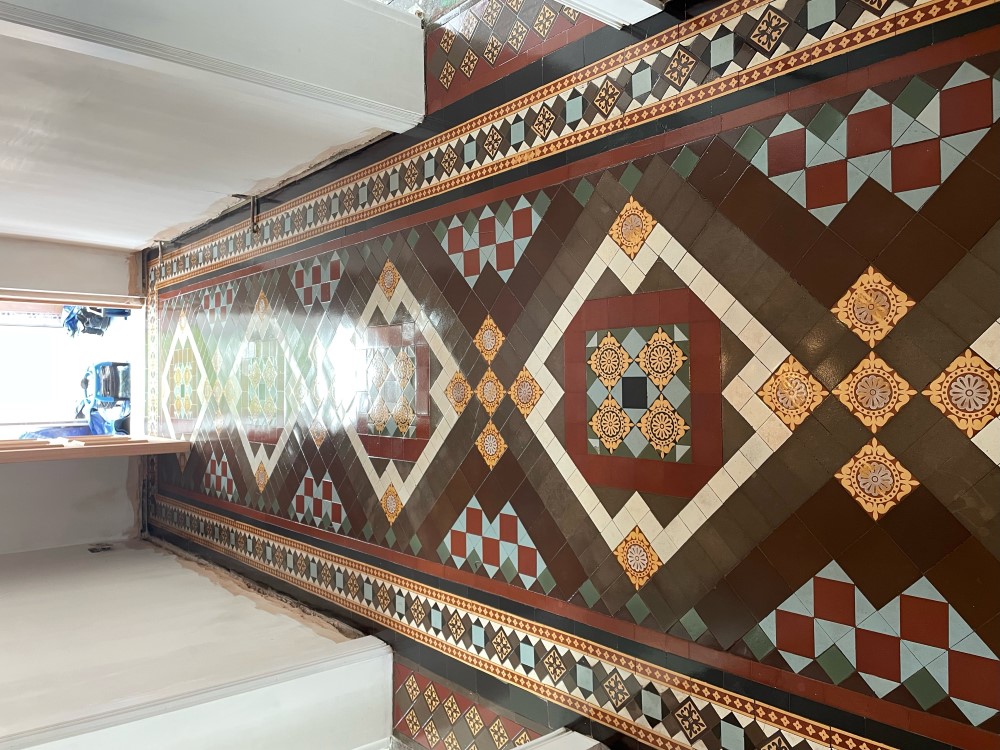
To seal the tiles, I applied five coats of Tile Doctor Seal and Go which is a water-based sealer that leaves a lovely satin finish. The sealer will protect the floor and ensure dirt remains on the surface where it can be easily removed.
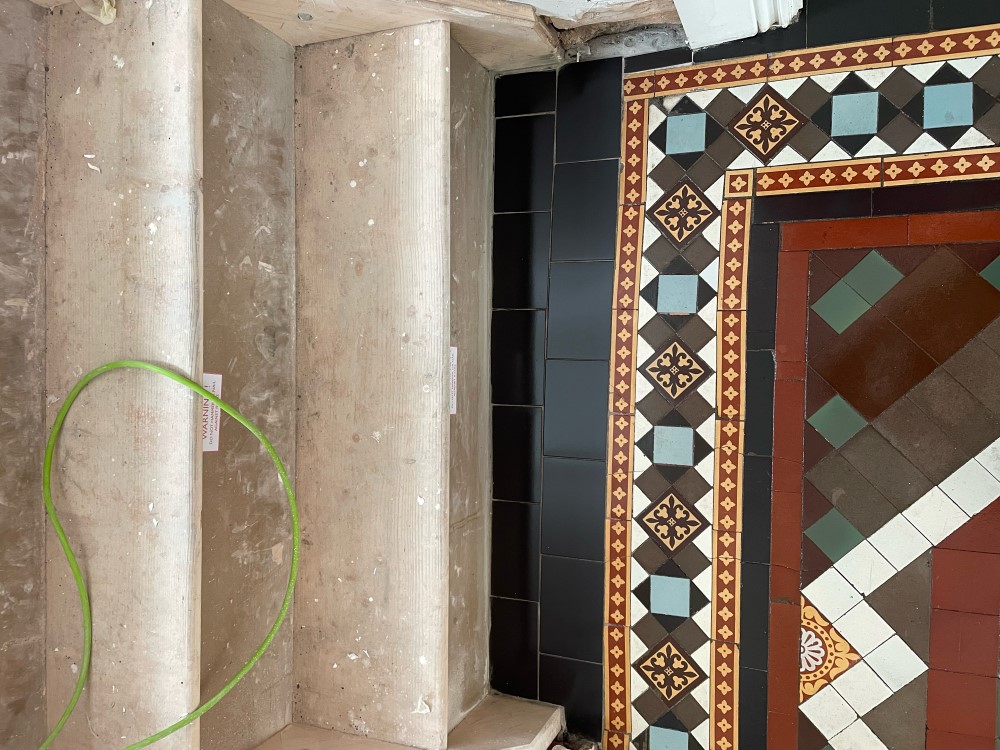
For aftercare I recommend the use of Tile Doctor Neutral Tile Cleaner which as its name suggests has a neutral pH. This is important as many floor cleaning products contain bleach which can strip the protective sealer off a floor leaving it vulnerable to ingrained dirt.
Source: Efflorescent Salt Solutions and Services in Stoke-on-Trent
